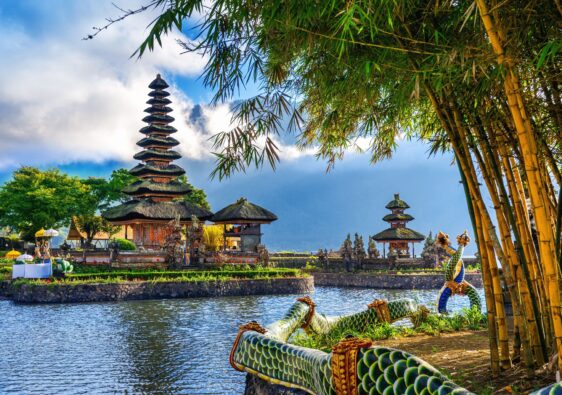Uyo, the capital city of Akwa Ibom State in southeastern Nigeria, is a vibrant and culturally rich destination known for its natural beauty and dynamic urban life. This guide will introduce you to the top places to visit, the best time to explore, exciting activities, transportation options, dining venues, famous street stalls, ideal accommodation, and essential travel tips to make your journey through Uyo unforgettable.
Places to Visit in Uyo:
Ibom Connection Statue:
Cultural Landmark
Visit the Ibom Connection Statue, a significant cultural landmark depicting the unity of the people of Akwa Ibom.
Ibom Plaza:
Urban Gathering Hub
Explore Ibom Plaza, a central location for relaxation, cultural events, and shopping.
Ibom Tropicana Entertainment Center:
Entertainment and Leisure
Discover the Ibom Tropicana Entertainment Center, offering a water park, cinema, shopping, and dining.
Best Time to Visit Uyo:
Understanding the best time to visit Uyo can enhance your experience:
Dry Season (November to February): This period offers pleasant weather for outdoor activities and exploration.
Rainy Season (June to September): While the landscape becomes lush during the rains, it may limit outdoor activities.
Things to Do in Uyo:
Uyo offers an array of activities for travelers:
Cultural Exploration: Immerse yourself in the rich traditions and cultural heritage of the Efik and Ibibio people.
Nature and Adventure: Explore the natural beauty of the region, including waterfalls, parks, and wildlife sanctuaries.
Cuisine Adventure: Savor local dishes and explore the diverse food culture of Uyo.
How to Get Around in Uyo:
To navigate Uyo and its surroundings, consider these transportation options:
Local Taxis: Taxis are readily available for short-distance travel within the city and its suburbs.
Buses: Public buses and minibuses are common for traveling within Uyo and to nearby towns.
Motorcycle Taxis (Okadas): Motorcycle taxis are a convenient way to reach specific locations within the city.
Where to Eat in Uyo:
Indulge in the flavors of Uyo’s cuisine at local eateries and restaurants. Try:
Local Dishes: Sample traditional Efik and Ibibio dishes like afang soup, edi-kaikong, and atama soup.
Street Food: Explore street food vendors for local treats such as akara (bean cakes), suya (grilled meat skewers), and boli (roasted plantains).
Famous Street Stalls in Uyo:
Uyo is renowned for its vibrant street food culture. While specific famous street stalls may not be widely known, exploring local markets and street food vendors is a culinary adventure. Look for regional delicacies and street food.
Where to Stay in Uyo:
Uyo provides accommodation options to suit different preferences and budgets:
Hotels: The city offers a range of hotels, from budget-friendly options to more upscale establishments with modern amenities.
Guesthouses: For a more intimate and local experience, consider staying in guesthouses or small inns.
Travel Tips for Uyo:
To ensure a safe and enriching trip to Uyo, consider these travel tips:
Visa and Documentation: Check the visa requirements for Nigeria and ensure your passport has sufficient validity.
Health Precautions: Consult a travel health clinic for necessary vaccinations and medications.
Local Etiquette: Familiarize yourself with local customs and be respectful of cultural traditions.
Safety Awareness: Stay informed about the current security situation and adhere to any travel advisories.
Language: English is widely spoken, but learning basic Efik and Ibibio phrases can enhance your interactions.
Currency: The Nigerian Naira is the official currency, and credit cards may not be widely accepted.
Dress Modestly: Dress modestly, especially when visiting religious and cultural sites.
Uyo, with its cultural heritage, natural beauty, and diverse cuisine, offers a unique and immersive travel experience in the heart of Akwa Ibom State. Whether you’re exploring cultural landmarks, enjoying the entertainment at Ibom Tropicana, or savoring local dishes, Uyo promises a captivating journey through a city known for its vibrant urban life and cultural richness.

